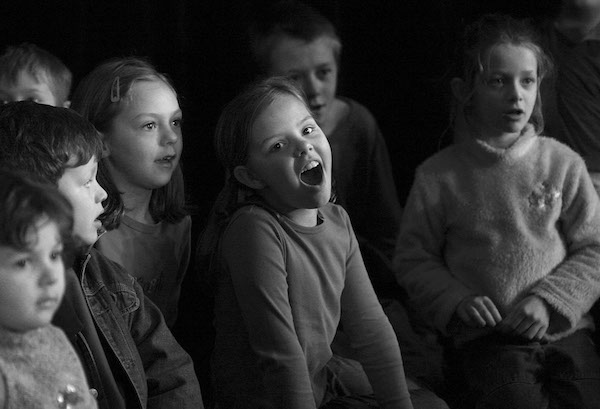Intergenerational Liturgy

These two big words are rarely used in common speak, but they both mean a lot to us as we ‘do’ church here at Jamberoo Anglican.
The first word, ‘intergenerational,’ describes our passion to fully include people of all ages and stages, as much as helpfully possible.
That means that we want our church to work for children, youth, seniors—people of all generations—as we gather each Saturday night and Sunday morning.
The natural response to this challenge would be to try to err on the side of making it feel like a special ‘all-age’ service, with lots of kids’ songs, puppets and memory verses.
Or, we could keep church just like it’s been for decades, and train the children to endure the adult-ness of the service, as we assume they will eventually learn the big words and get used to the formality.
But, in our church we’ve tried to cater for all of the people, most of the time, so that every person will participate and benefit, even if some of it is a little out of our comfort zone.
Ironically, a way we have achieved this is by using what the second, big word describes, namely, ‘liturgy’.
This word is commonly used to describe the words we say together during our church service, like set prayers, creeds, and the public reading of psalms.
Conventional wisdom would say that liturgy was the last thing that younger people would want, and yet it’s a surprisingly good and powerful way to achieve our desire for intergenerational church.
For, by saying words together that have been prepared in advance, it actually helps people of all ages to have the confidence to participate in church, and the joy of being fully involved, no matter how old they are.
In fact, accessible and intelligible liturgy doesn’t need to feel ‘formal’ but can actually be a really-helpful ‘scaffold’ for younger people seeking to fully engage with the ‘grown ups’ with whom they share church, week in and out.
JODIE McNEILL
